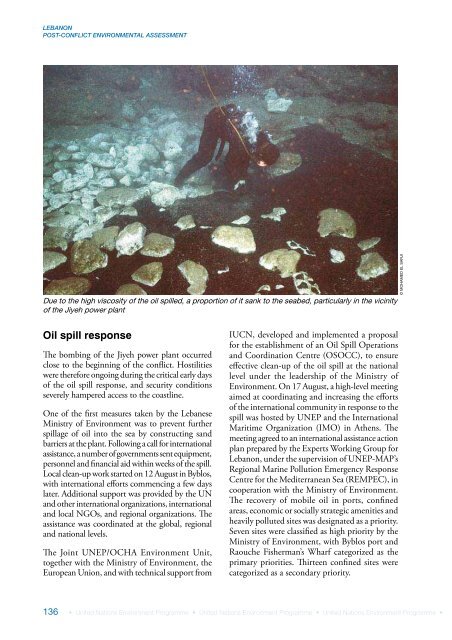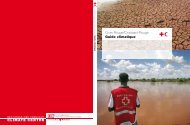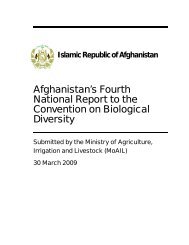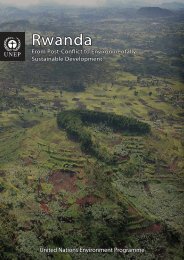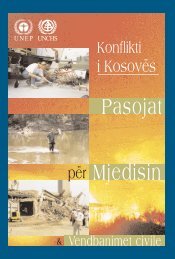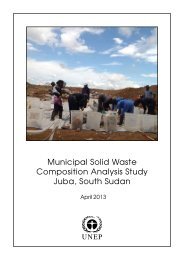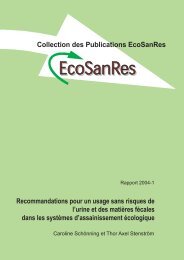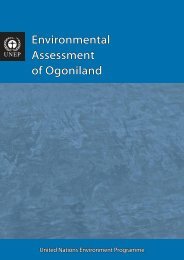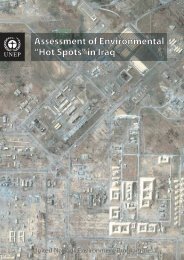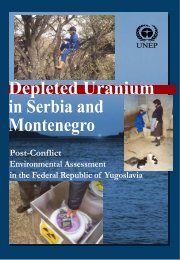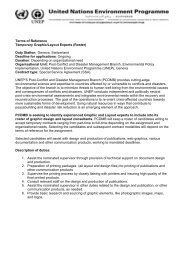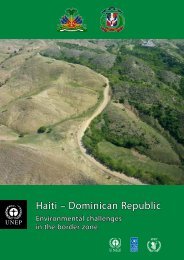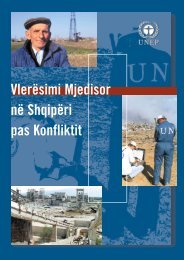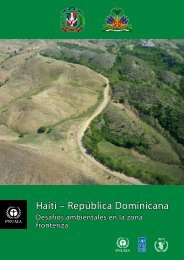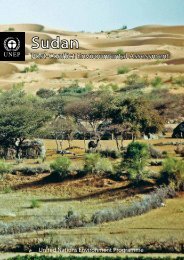Lebanon Post-Conflict Environmental Assessment - UNEP
Lebanon Post-Conflict Environmental Assessment - UNEP
Lebanon Post-Conflict Environmental Assessment - UNEP
Create successful ePaper yourself
Turn your PDF publications into a flip-book with our unique Google optimized e-Paper software.
LEBANONPOST-CONFLICT ENVIRONMENTAL ASSESSMENTDue to the high viscosity of the oil spilled, a proportion of it sank to the seabed, particularly in the vicinityof the Jiyeh power plant© MOHAMED EL SARJIOil spill responseThe bombing of the Jiyeh power plant occurredclose to the beginning of the conflict. Hostilitieswere therefore ongoing during the critical early daysof the oil spill response, and security conditionsseverely hampered access to the coastline.One of the first measures taken by the LebaneseMinistry of Environment was to prevent furtherspillage of oil into the sea by constructing sandbarriers at the plant. Following a call for internationalassistance, a number of governments sent equipment,personnel and financial aid within weeks of the spill.Local clean-up work started on 12 August in Byblos,with international efforts commencing a few dayslater. Additional support was provided by the UNand other international organizations, internationaland local NGOs, and regional organizations. Theassistance was coordinated at the global, regionaland national levels.The Joint <strong>UNEP</strong>/OCHA Environment Unit,together with the Ministry of Environment, theEuropean Union, and with technical support fromIUCN, developed and implemented a proposalfor the establishment of an Oil Spill Operationsand Coordination Centre (OSOCC), to ensureeffective clean-up of the oil spill at the nationallevel under the leadership of the Ministry ofEnvironment. On 17 August, a high-level meetingaimed at coordinating and increasing the effortsof the international community in response to thespill was hosted by <strong>UNEP</strong> and the InternationalMaritime Organization (IMO) in Athens. Themeeting agreed to an international assistance actionplan prepared by the Experts Working Group for<strong>Lebanon</strong>, under the supervision of <strong>UNEP</strong>-MAP’sRegional Marine Pollution Emergency ResponseCentre for the Mediterranean Sea (REMPEC), incooperation with the Ministry of Environment.The recovery of mobile oil in ports, confinedareas, economic or socially strategic amenities andheavily polluted sites was designated as a priority.Seven sites were classified as high priority by theMinistry of Environment, with Byblos port andRaouche Fisherman’s Wharf categorized as theprimary priorities. Thirteen confined sites werecategorized as a secondary priority.136 • United Nations Environment Programme • United Nations Environment Programme • United Nations Environment Programme •


